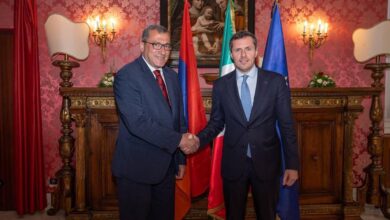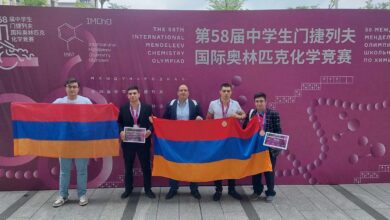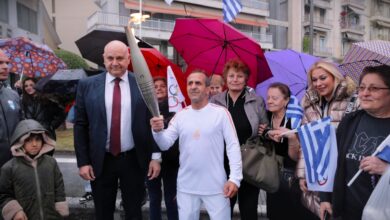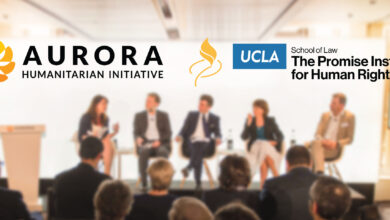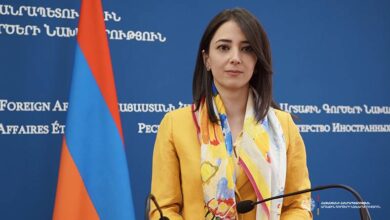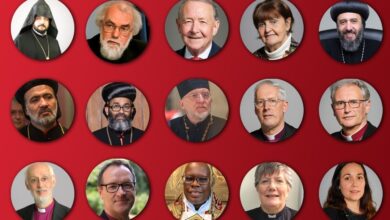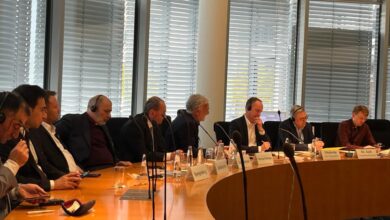Armenian Archibishop chides Rivlin for referring to genocide as ‘mass killings’
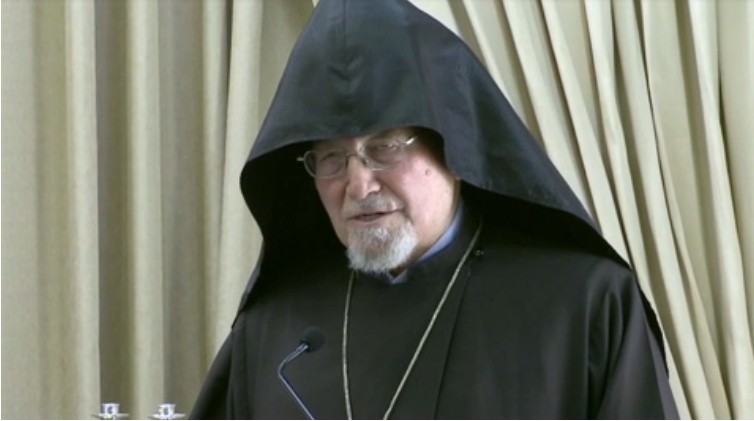
A quarter of century ago, as a Member of Knesset, Reuven Rivlin broke the taboo on acknowledging the Armenian genocide at the hands of the soldiers of the Ottoman Empire. Later as Speaker of the Knesset he defied government attempts to have the subject of the Armenian genocide removed from the Knesset agenda and gave the podium to Knesset members from across the political spectrum to air their views. The Armenian genocide was a subject of consensus for legislators from the far right to the far left, the Jerusalem Post reports.
On Sunday, Rivlin invited some of those former members of Knesset who also happened to be former government ministers to the President’s Residence, along with Armenian religious and lay leaders and writers Haim Gouri and Haim Be’er plus IDC President Uriel Reichman and noted historian Yehuda Bauer who had also identified strongly with Armenian suffering.
In his address, Rivlin noted that in 1915 members of the Armenian nation were being massacred and some of them found shelter in Jerusalem including among members of his own family. No-one in Jerusalem denied the massacre he said. “We are morally obligated to point out the facts as horrible as they are and not to ignore them.”
This year, for the first time, the Knesset sent a delegation to Yerevan in Armenia to mark the 100th anniversary of the tragedy, Rivlin noted. He also said in his opening remarks that the Armenian people were among the first victims of modern mass killing.
Archbishop Aris Shirvanian took Rivlin to task, reminding him that he had been present in the Knesset when Rivlin spoke of the Armenian genocide. To now refer to this calamity as mass killing was in Shirvanian’s opinion as well as those of Armenian Patriarch Nourhan Manougian; and representative of the planning committee for an Armenian national day in Israel, Georgette Avakian, a regressive move. “I am disappointed” said Shirvanian, chiding the president for using the expression ‘mass killings’ “rather than genocide which you courageously used in the Knesset. This was a backward step on your part. You should have been more courageous as president.” Shirvanian contrasted Rivlin’s euphemism with German President Joachim Gauck’s use of the correct expression and said that he would send Rivlin a copy of Gauck’s speech. Shirvanian said that his grandfather together with his brothers had been conscripted into the Ottoman army and brutally killed by the Turks who deported, raped and killed men, women and children.
Rivlin had also made the point that Israel does not seek to blame anyone but to acknowledge what happened and to identify with the victims. Evil is not the property of any religion, any country or any ethnic group, he said, adding that no-one should be allowed to make cynical usage of human rights language for political purposes.
It was a Jewish, human and moral obligation to acknowledge the Armenian tragedy, he said.
Tsolag Momijian, the Armenian Honorary Consul declared “This is an open house and you are an open president.”
Momijian made no bones about whom the Armenians blame for the genocide. Lauding “noble Israelis” for initiating Knesset discussions on the subject over the past few years, he praised them as “people of great morality” who understand that the Armenian genocide is not a political issue but a moral case. This is something the Israeli government never understood and wanted to leave to the historians, he lamented, but Israeli historians said it was genocide, Momijian continued. The more recent Israeli excuse was the signing of the October 2009 Protocols of Zurich which confirmed the normalization of relations between Armenia and Turkey. However two months later, Turkey reneged, and the normalization process remains in limbo. The Turks want to impose certain conditions which are not acceptable to Armenia Momijian explained. The Armenian genocide he emphasized, is acknowledged as one of the most modern genocides and one of the most publicized after the Holocaust.. He voiced the hope that one day Israel will recognize the Armenian genocide for what it was.
Yair Tzaban, a former minister for immigrant absorption said that for 25 years he has been involved in the struggle for the acknowledgement of the Armenian genocide. He recalled that Rivlin had been the first Knesset Speaker who permitted the issue to be discussed in the Knesset plenum. Since then it has never disappeared from the Knesset agenda, said Tzaban. He said he was proud that Jews had played an important role in publicizing the massacre, but he was ashamed that a nation that had risen from the Holocaust and which continues to battle to this day against Holocaust denial does not support the Armenian effort to have its genocide recognized. Those who do nothing to avert denial of the Armenian genocide contribute to the minimalization of the tragedy, he said.
Tzaban evoked the memory of poet, playwright and journalist Natan Alterman who in the 1940s when Jewish refugees knocked at the doors of different nations begging for help and were refused due to national interests, wrote that for the sake of national interests they were willing to sacrifice all moral values. The implication on Tzaban’s part was that in former years when it enjoyed much better relations with Turkey than it does today, Israel was willing to sacrifice its moral values for national interests.
Reichman said that Zionism carries the moral message that freedom and self determination are not just a solution for the Jews but for all peoples. If the political system cannot acknowledge this he said, then the citizens of Israel can. IDC is hosting a mega conference on the Armenian genocide, he said, to ensure that all of its students are aware of it. He was confident that other Israeli institutions would do likewise. “As Jews we must identify with Armenian suffering,” he insisted.
Bauer said that human groups have murdered other human groups since the beginning of time, but the twentieth century experienced several peaks, first in South West Africa, then in Armenia and then the Holocaust. He did however make a distinction between the Holocaust and genocide, but said that the genocide connected with what happened to the Jews. In this context he referred to Franz Werfl’s book The Forty Days of Musa Dagh, which relates to the Armenian experience of 1915 and tells of how a small community of people tried to defend themselves against the Turks. Momijian had previously referred to the book saying that it was one of the most widely read books in the Warsaw Ghetto. Bauer confirmed this, stating “it appealed to people who had no chance of survival.”
Former Agriculture Minister Haim Oron warned that genocide is likely to happen again if it is not recognized as such.
He also mentioned that the subject is once again scheduled for discussion in the Knesset in two weeks time.
Georgette Avakian reminded Rivlin that he had once told her that if Menachem Begin was still alive, he would have recognized the Armenian genocide. She also said that she hoped that all Israelis will recognize it and that in the future Rivlin would use the word genocide.


